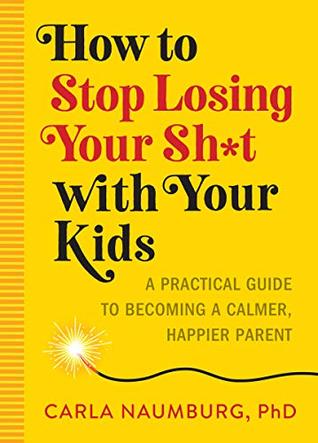More on this book
Community
Kindle Notes & Highlights
Read between
June 2 - June 20, 2022
Becoming a parent rattled my entire life, including my academic studies, my career plans, and my relationships. I expected motherhood to be challenging; I didn’t expect it to turn everything upside down.
Stress is the belief, feeling, or thought that we cannot handle whatever is happening.
K Ignore the kids. I’m not kidding. Teach and encourage them to entertain themselves. Let them be bored; it really is good for them. You don’t have to be constantly attentive to your child, and you sure as hell don’t need to involve yourself in their play. (For more on this, see Chapter 7.)
Far too many people spend their entire lives at the mercy of whatever happens to grab their attention, never realizing that they have the ability to not take the bait. Each time we notice that we’ve been distracted, stuck in a repetitive thought cycle, or flooded by emotions, we can choose to step back and watch the show, rather than stepping into the lead role.
“I’m sorry I yelled at you. I felt frustrated when you didn’t put your shoes on. But yelling wasn’t a good choice, and I apologize.
You don’t have to say you’re sorry for feeling cranky or frustrated or exhausted or anything else. There is absolutely nothing wrong with any emotion, ever, no matter how yucky it may feel. You may, however, need to apologize for your behavior. The distinction between how you feel and what you do is an important one for both you and your children.
K What am I thinking? What am I feeling? K What is happening in my body? Am I exhausted? In pain? In need of food, water, or caffeine? K What is triggering me? What else is going on in my life? K Is the time of day or year relevant to my situation? Are there any major events coming up that might be stressing me out? K How can I calm myself down? What do I need right now? What can I put down or let go of, even for just a few minutes? K What do my kids need? Why are they pushing my buttons? Are they tired, hungry, or getting sick? Are they dealing with any major transitions or changes?
...more


